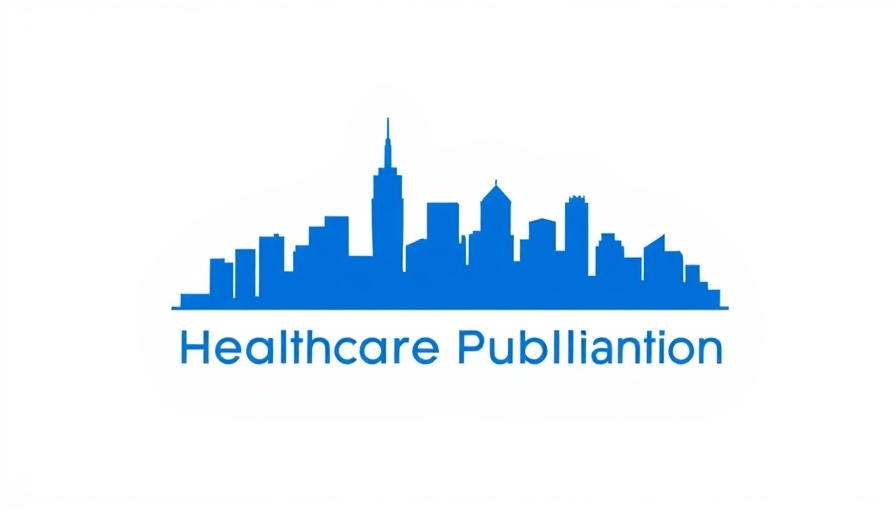
Preserving Vaccine Coverage: A Call to Action
In a timely note of advocacy, a coalition of pharmacy organizations, including the American Society of Health-System Pharmacists (ASHP), has reached out to major health insurers—such as UnitedHealthcare and Cigna—urging them to maintain existing vaccine coverage without imposing higher cost-sharing on patients. Their recent correspondence arose from concerns regarding possible changes in vaccine benefits that may follow updates from the CDC’s Advisory Committee on Immunization Practices.
Significance of Vaccination in Public Health
Vaccines are not only among the most effective tools for disease prevention; they also represent significant financial savings for healthcare systems. The coalition's letters stressed that any potential revision in coverage should only occur with “clear evidence of harm or a high likelihood of adverse effects.” With millions of lives positively impacted by vaccinations annually, the argument stands strong: preserving vaccine coverage is critical for communal health and economic stability.
The Financial Perspective: Impact on Healthcare Costs
Maintaining comprehensive vaccination coverage is pivotal not only for public health but also for financial efficiency across health systems. The cost associated with preventable diseases can significantly inflate healthcare expenses. The ASHP emphasized that supporting vaccinations through insurance not only fosters healthier communities but also aligns with prudent fiscal management—essential for independent practices and smaller health systems looking to optimize practice revenue. Preventing outbreaks can save millions, allowing more resources to be directed towards enhancing healthcare services.
Pharmacy’s Role in Ensuring Access
As frontline providers, independent pharmacies occupy a unique position in promoting vaccination uptake. With community pharmacists' increasing involvement in vaccine administration, it’s crucial that insurance coverage remains accessible. Independent pharmacy owners have voiced their commitment to facilitating vaccinations, asserting that any barriers to financial access could lead to diminished vaccine rates, ultimately impacting community health outcomes. The continuity of vaccine coverage plays an integral role in their operations, allowing them to serve their patients effectively.
Lessons from the Pandemic: A Renewed Commitment to Health
The COVID-19 pandemic starkly highlighted the necessity of vaccination in safeguarding public health. As healthcare entities adapt post-pandemic, the push for uninterrupted vaccine coverage arises as a sentiment fortified by collective experience. We’ve learned that widespread vaccination not only benefits individual health but strengthens the healthcare framework's resilience against future health crises.
Looking Ahead: The Future of Vaccine Coverage
Rapid advancements in healthcare technology—such as pharmacy profitability tools and patient engagement tools—are reshaping how vaccinations are managed. The insights from pharmacy organizations underscore that integrating innovative measures can streamline access, therefore enhancing patient compliance and health outcomes. As policies evolve within the healthcare system, these digital solutions may play a key role in ensuring safe, effective, and efficient distributions of vaccines.
Community Engagement: The Heart of Healthcare Delivery
Beyond mere advocacy, the coalition’s call to preserve vaccine coverage signifies a broader movement to involve communities in health decisions. Engaging rural health clinics and direct primary care doctors can create a more responsive healthcare environment, ensuring that vaccines remain accessible to all segments of the populace. This holistic view, linking clinical practice with proactive health engagement, is essential as we strive toward optimized healthcare systems.
Concluding Thoughts on Vaccine Coverage Sustainment
The letter from pharmacy organizations to insurers is not merely an appeal: it’s a vital reminder of the interdependence between effective public health policy and sustained healthcare practices. As advocates for patients, medical providers should join the conversation, underscoring the importance of vaccines in their practice and the community. Addressing the barriers to vaccine access today could well determine the health realities of tomorrow. Thus, every stakeholder must engage in advocating and supporting comprehensive vaccine coverage.
Let’s take proactive steps to ensure the continued success of vaccination programs in our communities. By supporting initiatives that call for maintained vaccine coverage, we not only safeguard public health but also nurture the foundations of our healthcare system. For independent practitioners aiming for profitable sustainability, engaging with health strategies that prioritize universal vaccine access is essential.
 Add Row
Add Row  Add
Add 




Write A Comment